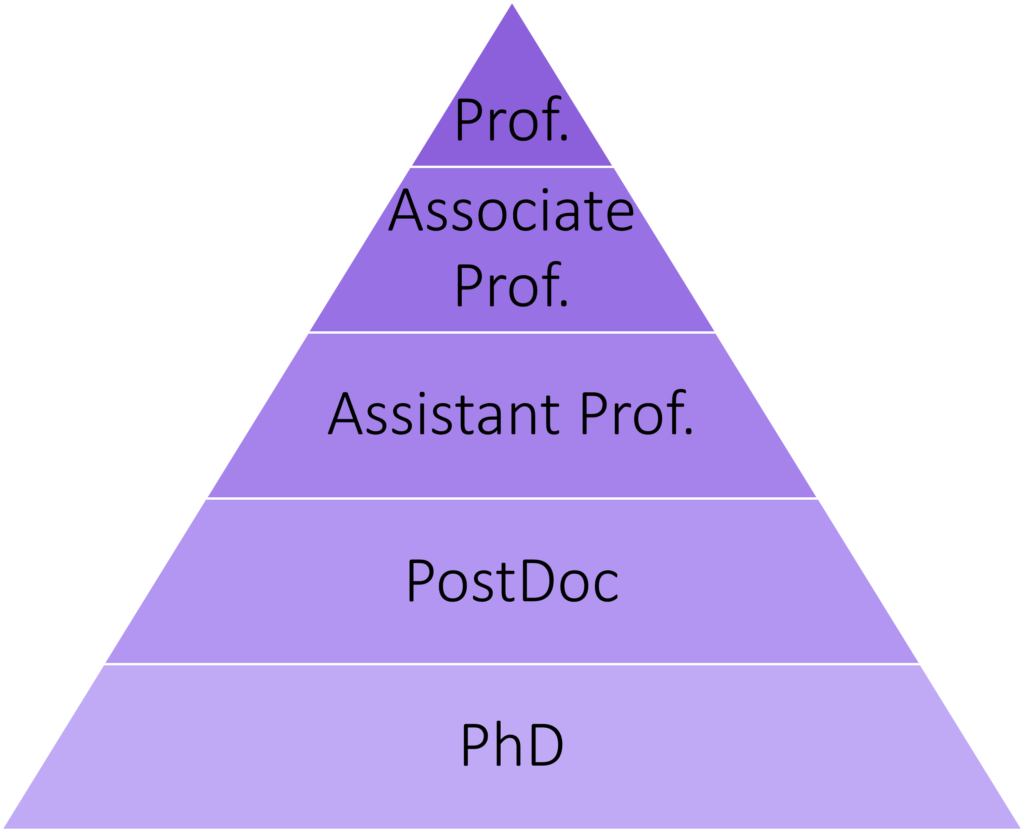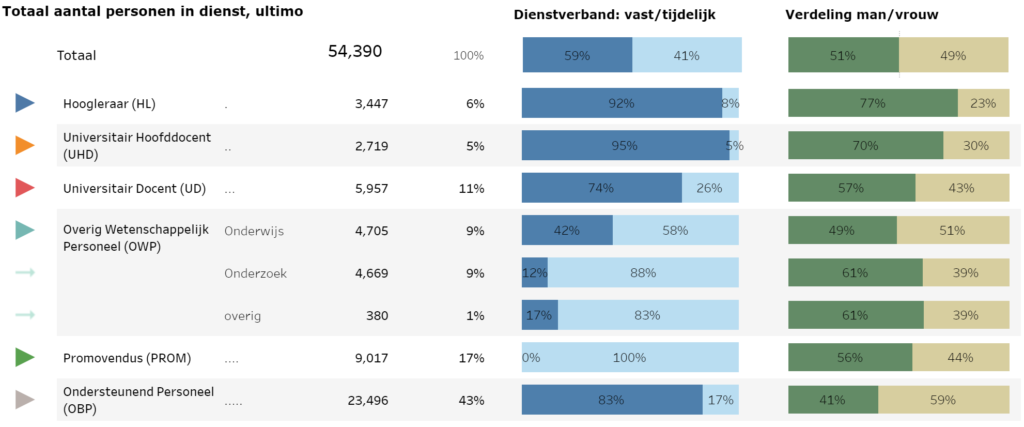When someone asks me how I ended up in this tenure-track position in medical visualization, I often answer: “Well, I was very lucky! There are not many positions like this and I had exactly the right mixed background”. A new interdisciplinary center for Medical Imaging and Visualization (MMIV) was about to be established and this position came with it. While I don’t disagree with myself entirely, calling it luck does not completely cover it.
Some people might respond differently to this question entirely and say (or at least think): “I am just that good and worked hard to get here”. This is a ‘self-made man’-style sentiment that I do not subscribe to. One of my friends, who has also started writing great blog posts recently, recently said “We’re all products of our backgrounds…. There is only a tiny bit we bring to the table ourselves. Some. But definitely not all.”. This exactly reflects my view on this topic, we are presented with different opportunities and challenges based on the environments we grow up in. This brings me to my reason for disagreeing with myself calling it just luck. It is not respectful to the people that made this path possible for me in many ways.
In this post, I would like to thank some of the people who made this particular career path possible for me. A risk of writing such posts is that you might forget to mention some and this could cause offense, but I would rather take this risk than never show gratitude at all. Sorry if I did not mention you! I am sure you were great as well 🙂
A supportive family
I grew up in a wonderful and loving family. My father worked as a lab analyst while my mother was a health care provider who took care of those that could no longer care for themselves. Both the precise and technical aspects of lab work and helping others ended up as a major inspiration for later career choices. Thanks to my dad’s passion for video games, we always had access to the latest computers. I started playing games with my dad and brother on the Commodore 64 when I was very young. Never once did I hear: ‘Oh games are not for girls, you are supposed to play with dolls’. I did not know of many in my family who went to University and there was certainly no one who had a PhD degree. Perhaps as a result of this, my parents never pressured me into getting top grades or picking certain career directions and only encouraged me by saying ‘you should do something you like doing’. I am so grateful for their support and exactly this encouragement.
A supportive study environment
When I was in elementary school, I had some sort of natural aptitude for math problems (unfortunately for me, this natural aptitude is currently missing in action :D). I was already finished with the math assignments way before others in my class. One of my teachers noticed and started giving me more math problems at higher difficulty levels so I would not be bored. She gave me the opportunity to do more of what I liked so much.
During high school, the open days at universities (a career path expected for students at Gymnasium high school level in the Netherlands) did not impress me at all. I remember ‘computer science’ in particular had something lame about databases as a demonstration of what the studies are about. I wanted to help people and thought of becoming a physical therapist. My dad took me to an open day at the local hospital and there we were also introduced to other professions. One of them was radiography. This job amazed me, they had all sorts of epic machines that allow people to look inside the human body. So I went to study and work as a radiographer for three years. I enjoyed it at the time, but realized I wanted to do more with the technical aspects of the job after some years. My supportive family and especially my partner encouraged me to quit a job I didn’t enjoy any longer and to study something I might enjoy instead. As I still loved gaming, I thought, why not computer science?
As I was gaming so much, at first I dreamed of becoming a game developer while studying computer sciences. However, on the university web pages when looking into computer graphics, I saw something called ‘medical visualization’. During my bachelor studies, I made an appointment with Charl Botha to see what that was about. He showed me super exciting research using a combination of computer graphics and the medical imaging data I had been on the producing end of in my previous job. This was clearly the best of both worlds! I happily did my bachelor thesis under Charl’s guidance and continued to specialize further in this area during my master’s. While a PhD position was certainly not something I was very aware of during my studies, I got a glimpse of this life while working with Charl on my master thesis project. I was fully convinced I was too stupid to do this sort of thing, but Charl patiently explained what type of skillset is needed to do a PhD and why I would be able to. If it was not for this particular encouragement and the position he had open, I would have never even considered it.
A supportive research environment
As a PhD candidate in the Netherlands, you are a paid employee with all benefits. This is a very good thing in my opinion. Especially as we didn’t have the financial means to support ourselves if this was not the case. Throughout my career as a PhD candidate, I again received excellent support from my environment. One example is all the advice and inspiration from my PhD advisors, which was not only limited to the research itself. Also my colleagues and collaborators were graciously sharing their experiences, their networks, and their time.
As I mentioned before, the tenure-track position I have came with the establishment of a new interdisciplinary research center. This center was established based on a lot of hard work from people in Bergen over many years in the MedViz initiative. This in turn provided perfect conditions for an exciting interdisciplinary research environment to thrive. I am so grateful to everyone here who has worked on making this happen and those that gave me a chance in this position. I am literally in the place of my dreams, an environment where people of different backgrounds collaborate on developing technology that helps people.
The longer answer
Coming back to my original answer. I still believe luck is a large component in landing the job I did. The academic job market is shaped like a pyramid with very little room at the top.

Just looking at the sheer number of positions, only very few will have the opportunity to achieve tenure. There simply are not enough positions to make everyone who has put in the hard work and would qualify an offer. This sucks and I think we should be aware of these odds from the very beginning. As advisors, we should highlight non-academic career paths post-PhD as they can be just as rewarding (if not more :D).

It is also important to acknowledge privilege. I had access to things growing up that made my career possible. For example, the computers in our home allowed me to build computer skills and interest from an early age. Many families do not have the financial means to support this or to support the ‘do what makes you happy’ career advice. I was lucky to join a research team with a great reputation internationally in my field and to have access to everything I needed. I try to pay it forward as much as I can.
Note the survivorship bias when considering who has tenured positions and trying to figure out what properties lead to success. While I would love to hand out the ‘Ten Hot Tips on How to Get a Tenure-Track Position – Number Five will Blow your Mind!’-clickbait, I cannot. I still believe a large component is luck and randomness. The luck is not only in available positions and background, but very much in having the right environment from the very beginning and along the way.
This post is the longer answer to the original question: “Well, I was very lucky to be born in the right supportive family, receive excellent support in my school years and meet many amazing people along the way! There are not many positions like this and I had exactly the right mixed background, thanks to the support of everyone around me.“. Thanks everyone! Also to those who inspired this blog post, you know who you are 🙂